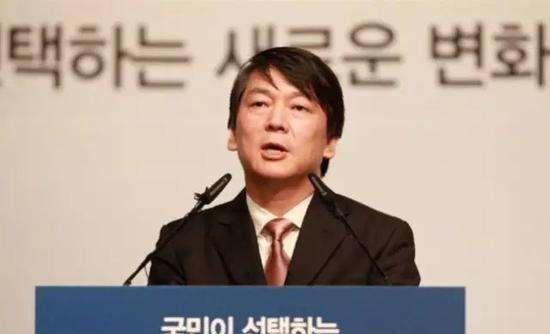According to South Korea's "Asian Economy" reported on the 6th, following the ruling party's joint Democratic Party presidential candidate Lee Jae-myung, the Kuomintang presidential candidate An Zhexiu also aimed at the hair loss problem, saying that he would keep the "top dignity" for the voters.

An Zhexiu posted on personal social media on the 5th that Lee Jae-ming promised to include drugs for the treatment of hair loss in medical insurance (south Korea calls it "health insurance"), but in fact, the financial pressure of medical insurance has been very large, and other methods should be sought. An Zhexiu said that the state should actively come forward to solve the problem of hair loss, and insurance alone is not enough, and the burden on the people can be reduced by lowering the price of hair growth agents. Since hair growth agents no longer need R&D expenses, there is plenty of room for price reduction.
South Korea's "Chosun Ilbo" reported on the 6th that a pharmaceutical company in the United States found in the process of exploring a treatment agent for prostatic hypertrophy that if it inhibits the male hormone metabolism DHT, it can prevent hair loss. The hair loss treatment developed according to this principle costs 1500-2000 won (about 8 yuan to 10.5 yuan) per pill, which needs to be taken every day and is not suitable for Korean medical insurance. Many people with hair loss can only take one of the cheaper Generic Drugs from India.
An Zhexiu also said that the global hair loss market size of about 54 trillion won, and at a rate of 4% per year, the World Health Organization statistics that 1.6 billion of the world's 7.7 billion people are plagued by hair loss problems, the hair loss market is a huge market.
Li said a few days ago that after being elected president, he will include drugs to treat hair loss in medical insurance. This campaign slogan quickly increased the exposure of Lee Zaiming and attracted the support of the hair loss crowd, and some netizens said that "Li Zaiming should be planted in the Blue House."
Some commentators believe that "health insurance", as the name suggests, is to protect the health insurance system, not to "protect appearance". At present, South Korea's medical insurance is in jeopardy because the expenditure is too large, and many drugs that are closely related to life such as anti-cancer drugs have not yet been included in medical insurance. But in order to get votes, there are presidential candidates who propose to include hair loss drugs in health insurance, which can be said to be "hair populism".
In response to the problem that the burden of medical insurance may be too large in the future, some experts said that the government can negotiate with drug manufacturers to collectively purchase drugs to reduce drug prices, and adjust the reimbursement ratio, such as determining the self-rate to 30%.
According to Korean media reports, about 10 million people in South Korea currently suffer from "top suffering", in employment, marriage and interpersonal communication, hair loss to many people to bring pain, and may even make people depressed. Statistics from the Korea Health Insurance Corporation show that about 233,000 South Koreans received treatment for de-morbidity through Medicare in 2020. The South Korean government has only included a small number of pathological alopecias in health insurance, so most hereditary alopecia patients can only be treated at their own expense.